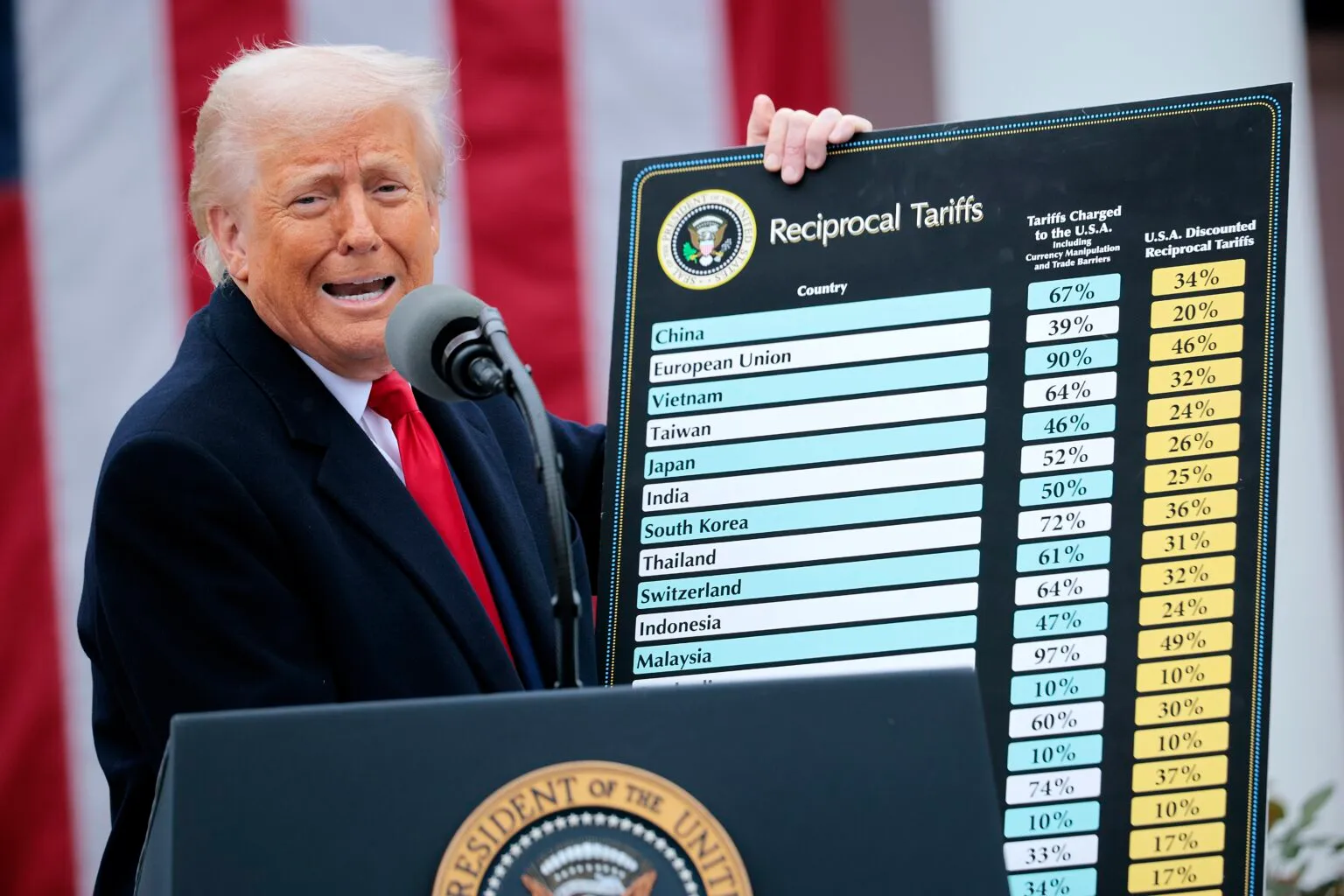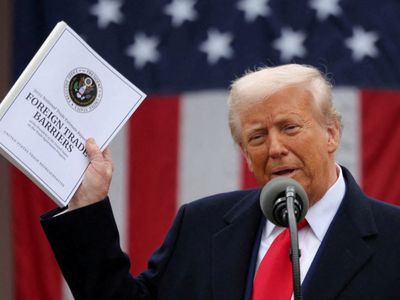Trump's own fake tan could be under threat after tariffs begin to show effect
The US President's tangerine appearance may be threatened by his own harsh import tax strategy.
Donald Trump's effort to 'Make America Wealthy Again' by imposing steep import taxes on foreign goods might be backfiring, as American shoppers face higher prices for overseas products. The President declared on April 2, which he named 'Liberation Day,' that products from more than 60 nations would be subject to a basic import tax of 10 percent or higher when entering the United States, causing the stock market to crash dramatically.

The broad import taxes, applied to countries "regardless of alliance status," took effect at midnight, while he announced a second set of charges would apply to the "most problematic nations" starting April 9, including a 20 percent tax on European Union goods and 34 percent tax on Chinese products, among others.
Trump has partially reduced the threat, announcing a 90-day tax delay for nations facing taxes above 10 percent. Nearly everyone received this pause except China, as the President escalated tensions by declaring Chinese goods will now face a 125 percent tax.
Economic experts and numerous US business sectors have cautioned that America's trade conflict with global partners could force Americans to pay more for everything from vehicles to food and essential utilities like electricity, as producers will likely transfer costs to buyers. This scenario becomes likely if affected countries retaliate with their own taxes, which Canada, the EU, and China have already promised to implement.
While citizens confront major price increases on many imported items, one unexpected consequence might leave Americans looking less bronzed, as self-tanner products appear on the heavily taxed list. America's top-selling bronzer comes from British brand St. Tropez, which will cost US customers 10 percent more under the new rates.
Meanwhile, the President's reportedly preferred tanning product, Bronx Colors, faces a substantial 31 percent price increase, as his signature orange complexion apparently comes from Switzerland. The Swiss cosmetics company claims to produce Trump's favorite cream, and though the President has historically avoided discussing his glowing appearance and skincare routine, reports suggest he requires exactly 2.5 containers of Bronx Colors Boosting Hydrating Concealer in orange shade available at all times. In 2019, a high-ranking White House official tried to dismiss reports about Trump's use of tanning products, attributing his orange hue to "good genetics."
But celebrity makeup expert Safia Cox stated it's evident he's "applying some type of cream product," noting: "You can see the border around his face. If you examine his hairline closely, it's very light." She told The Mirror: "I believe he uses some kind of self-tanner or tinted face cream with bronzing properties."



